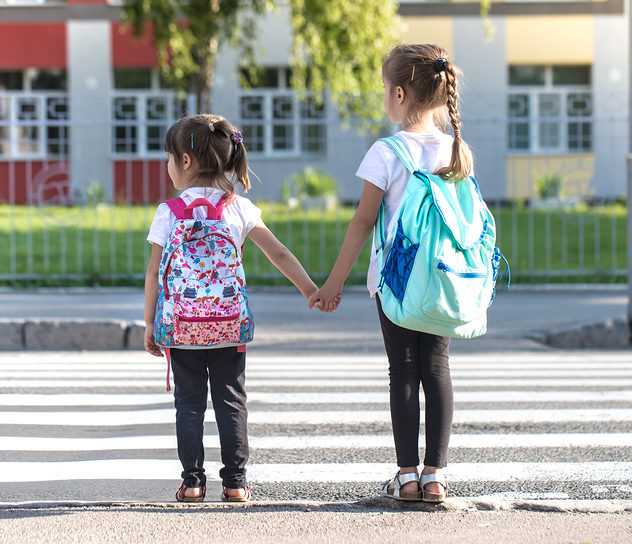Families nationwide are sharpening pencils, dusting off backpacks and setting alarm clocks as another school year gets underway. There is a special energy in the air that consists of part excitement, part curiosity and, maybe, a little nervous anticipation.
The first days back are not about checking off supply lists or figuring out the right bus stop. They are about setting the tone for the months ahead, shaping habits, building attitudes and setting expectations. It is the moment when we lay the foundation for a year that could change the way children learn, grow and see the world.
As a former superintendent, I know that parents and teachers face the start of every school year with optimism as they approach new challenges. Education reforms, tight budgets and concerns about student well-being have added fresh pressures in classrooms. The question is no longer, “What will students learn?” but, “How can we help them truly thrive?”
That is why it is crucial to bring together strong academics with real flexibility, and to balance a broad, global perspective blended with the unique priorities of each local community.
An essential starting point is literacy. Strong reading skills are the foundation for success in every subject. When well done, literacy instruction is not limited to reading a prescribed list of books. Instead, reading materials can be tailored to reflect the culture, history and values of the local community and the curiosities of the reader. This flexibility matters because children are more likely to engage deeply with content that feels relevant to them. Encouraging exploration helps to make learning relevant and spark a lifelong love of reading and learning. Engaged reading helps to increase the academic stamina students will need to master complex tasks.
Student well-being is another essential priority. Every community has seen how bullying, social pressures and mental health challenges can affect learning. Schools that value respect, empathy and inclusion create safer environments where students can grow and thrive. Schools need to support students from all backgrounds by building values that encourage students to work together productively, learn from one another, and treat one another respectfully. In a world that’s only getting more divided, fostering this kind of environment within the school culture is essential.
Every student is unique. Tapping into their strengths and supporting them through challenges is key. Budget cuts can make it harder to provide the right resources, but there are ways to adapt. Thoughtful schools build accommodations into their structure so that students with different needs have the tools to succeed. This can include extra time for assignments, rest breaks during exams, or flexible deadlines.
Materials can be provided in formats such as Braille, sign language or audio, and technology can help students who need text-to-speech, speech recognition, or graphic organizers. Some students work with scribes or practical assistants. These options are not special favors. Every student deserves the chance to shine without unnecessary barriers holding them back.
Parents have a critical role in making back-to-school a success. Asking open-ended questions about what children are learning, discussing current events from different perspectives, and supporting personal explorations can reinforce classroom learning. Encouraging students to ask questions and pose wonderings at home is essential for curiosity and creativity. Attending school meetings, meeting teachers early in the year, and connecting with other parents can help families feel more confident about the road ahead. Even small actions such as creating a dedicated, distraction-free homework space at home or reviewing goals for the year can make a lasting difference.
As students move through their school years, the most important goal is not to prepare them for the next test or the next grade. It is to help them develop the skills and confidence to solve problems, work with others and think critically about the world around them. Programs that combine academic challenges with a focus on the whole child can help meet this goal. They allow students to ask big questions, explore new ideas and discover how they can make a positive difference.
Education isn’t about cramming for the next exam or ticking boxes for college apps. It’s about equipping young people with the tools to tackle real-world problems, collaborate effectively and think deeply about their place in society.
This back-to-school season, whether you are waving goodbye to a kindergartener or prepping a senior for what’s next, let’s commit to more than the basics. Education is a shared journey, one that flourishes when we infuse it with curiosity, kindness and purpose. Students and our future deserve nothing less.


